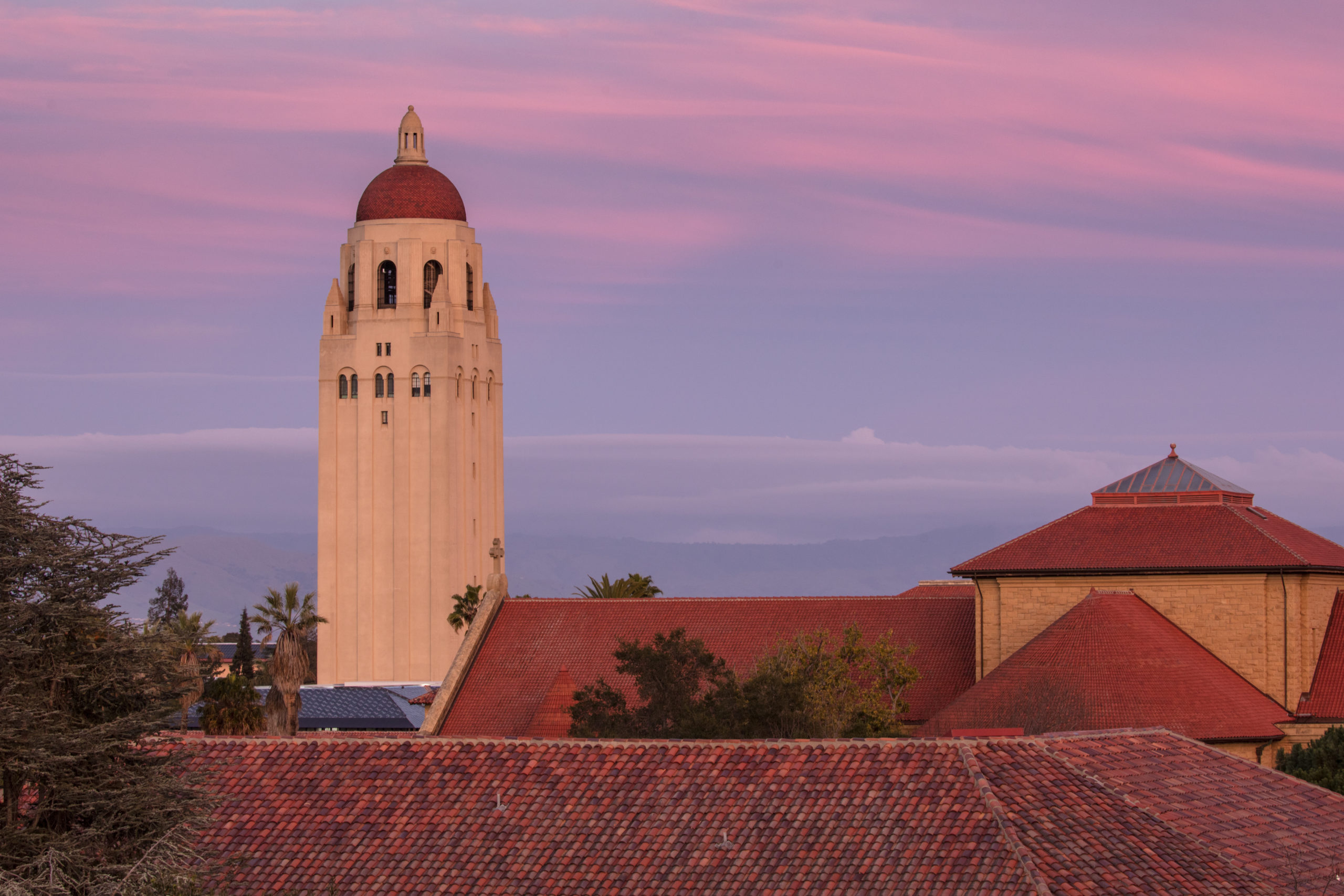Communications lecturer Janine Zacharia spoke about lessons learned from almost two decades spent as a foreign correspondent in the Middle East to around 50 Stanford community members at McClatchy Hall on Monday.
During the public discussion, titled “The Fog of War,” Zacharia described the intricacies of covering the Israeli-Palestinian conflict as a journalist. The panel was moderated by communications professor and department chair James Hamilton and attended by many University affiliates, including former Stanford president John Hennessy, political science professor Scott Sagan and law professor Allen Weiner.
Zacharia spent nearly two decades reporting on Israel, the Middle East and U.S. foreign policy for various publications, including The Washington Post. The discussion comes amid ongoing war in Israel and Gaza, in the wake of Hamas’ Oct. 7 surprise assault on Israel. The conflict has claimed the lives of more than 1,200 Israelis and 17,000 Palestinians.
Hamilton wrote that he hoped students would “come away appreciating how complex the challenges of covering the war are, how reporters invest in learning about history and context when they report from abroad and how they hope that readers will judge them by their work rather than their backgrounds,” in an email to The Daily.
Zacharia began the event by asking audience members traits they considered essential for foreign correspondents. She then illustrated each trait with an experience from her own life. For “resourcefulness,” for instance, she spoke about needing to file a story after the internet had been shut off during the Egyptian Revolution in 2011. After receiving a call from her father, Zacharia asked him to call the Post, who she was reporting for at the time, and dictated to him the entire article “like it was 1970 or something,” she said.
When asked about the greatest challenge in covering the conflict, Zacharia said it was difficult to obtain the truth amid a set of “dueling victim narratives.” She raised the recent breakdown of a temporary truce between Israel and Hamas as an example, pointing to how Israel and Hamas each accused the other of firing first to break the truce. The truce, which had been negotiated to facilitate negotiations between the two sides, ended Nov. 30.
“Whose version are you going to lead with?” Zacharia said. “Unfortunately, the only way to do it is to give both versions.”
As a Jewish reporter, Zacharia said her identity had come under increased scrutiny during her time as a foreign correspondent. Zacharia said she frequently had to obscure her identity while meeting with Muslim leaders, who questioned whether she was capable of reporting on the issues fairly.
Amid the current Israel-Hamas war, Zacharia said she had received many messages, some threatening, questioning whether she could objectively cover the conflict given her identity.
Zacharia said when she was hired to cover the Middle East by the Post in 2009, she was clearly qualified for the job given her wealth of experience.
“Now, in 2023, am I going to be rejected because I’m Jewish?” she said.
An audience member asked her to speak on Stanford’s statements on the conflict. The University’s policy of neutrality had previously been criticized in an open letter signed by over 1,800 Stanford affiliates, who urged the University to directly condemn Hamas’ actions. Zacharia redirected the question to Hennessy, who said that “it’s not the job of the University to take political positions.”
“I would put out a statement saying we empathize with the pain on both sides, and that innocent people have been killed,” Hennessy said. “There are people in our community whose families and friends are in danger, and it’s for them you’re making that statement.”
Zacharia said she agreed with Hennessy, and spoke about a meeting she had with a “beleaguered” President Richard Saller after the Oct. 7 attack.
Zacharia advised Saller that his “job is to make the students feel safe. The students have to feel safe here and we need to provide a safe learning environment for them.”
Ray Ostil ’25, a communications student who attended the event, wrote that he appreciated how the discussion reemphasized that “accuracy is of greater importance” than speed and that there were many difficulties associated with potentially “humanizing a (supposed) villainous character.”
“I immediately felt the sincerity from Janine,” Ostil wrote. “I can think of no better way to think critically about journalistic integrity, than to hear about the thin line she walked as a journalist living in Israel constantly covering Palestine.”
Toward the end of her talk, Zacharia spoke about Anthony Shadid, a war correspondent who suffered a fatal asthma attack in 2012 while reporting in Syria. Zacharia said Shadid’s death exemplified the “kind of risks that foreign correspondents take to do this kind of work, especially in the Middle East.”
Hamilton wrote he was particularly inspired by Zacharia’s ending remarks, where she spoke about “how the next generation of reporters, the students in the audience, can have an impact on the world through accurate and transparent public affairs reporting.”
“I was so lucky, and now I get to train you guys to do it,” Zacharia said. “You just have to have thick skin for the trolls, man — the trolls are fierce.”
